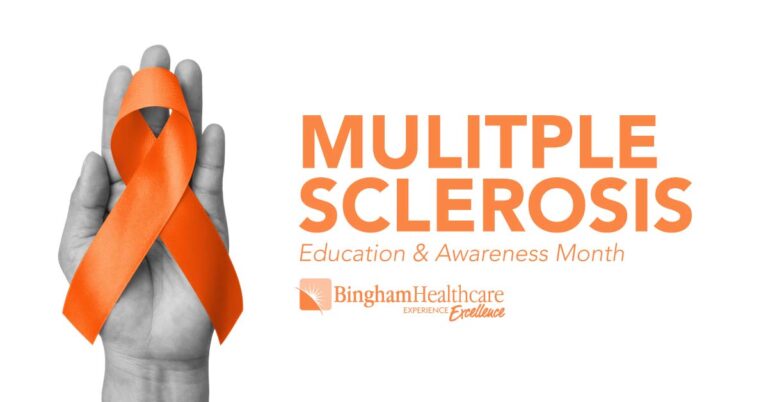
How do People Develop Autoimmune Diseases?
Submitted by the International Autoimmune Institute & Bingham Memorial Center for Functional Medicine
Autoimmune disease is recognized as a major health crisis in the United States. Today, 50 million Americans—80 percent of whom are women—suffer one or more autoimmune conditions. Thirty years ago, only one in 400 people developed an autoimmune disease. Today, one in 12 Americans—one in nine women—have an autoimmune disease. More women are diagnosed each year with an autoimmune disease than breast cancer and cardiovascular disease combined.
David J. Bilstrom, MD—the Director of the International Autoimmune Institute & Bingham Memorial Center for Functional Medicine—explores the mystery behind how people develop an autoimmune disease and how their effects can be reversed.
What is an autoimmune disease?
It’s a condition in which the immune system mistakenly attacks the body’s own tissue. Some of the more common conditions include rheumatoid arthritis, lupus, multiple sclerosis, psoriasis, Hashimoto’s thyroiditis, type 1 diabetes, and ulcerative colitis or Crohn’s disease, but the National Institutes of Health estimates there are more than 100 types of autoimmune diseases.
How does an autoimmune disease develop?
Three things have to be disrupted in order for an autoimmune disease to develop:
- Genetics
- Terrain
- Environmental Triggers
“People are always going to have environmental triggers,” says Dr. Bilstrom. “Some examples include: a car accident, the death of a loved one, ongoing stress, or the birth of a baby. There are always going to be these stressors to the system, but, ideally, they shouldn’t cause an autoimmune disease.”
What has to happen for an autoimmune disease to develop is the disruption of the genetics and then the disruption of the terrain. Examples of the terrain include: sleeping and eating habits, exercise routines, and how stress is being managed. Other examples of terrain that can be scientifically tested are: hormone balance, toxicity levels, vitamin levels, and any pre-existing chronic infections.
“By testing for these things to determine problem areas, we can then go in and fix them, which can have a profound and positive impact on the body, the immune system, and genes,” says Dr. Bilstrom. “People used to think that genes were hard-wired. Whatever you got, you got. Good, bad, or otherwise. We now know that this is not the case, and there’s an entirely new field which explores things that can significantly change gene expression—epigenetics.”
For example, someone may have a gene that is turned on, but shouldn’t be. If the terrain is fixed, then that turned on gene can be turned off. The same holds true if someone has a gene that is turned off that shouldn’t be. If the terrain is changed, then that gene can be flipped back on again.
Changing the terrain
“I like to think of the terrain as a backyard swimming pool,” says Dr. Bilstrom. “Ideally, that backyard swimming pool should be crystal clear, the water shimmers in the sunlight, and you can see all the way to the bottom. And, when you see that pool, you think to yourself, ‘how inviting would that pool be?’”
“On the other hand, your backyard pool could have tons of algae, old beer cans, tires, and even a couple of dead raccoons floating in it,” says Dr. Bilstrom. “And, you think to yourself, ‘that’s the most disgusting thing I’ve even seen!’”
Now, the second example is still considered a backyard pool, but while it’s terrible, not all is lost. This backyard pool has the potential to be cleaned up. The same holds true with changing your genes. If they’re changed, or cleaned up, then you’ll start to feel so much better, too.
Environmental triggers that disrupt genetics and terrain
In order for environmental triggers to kick start an autoimmune disease, there has to be a disruption in genetics and the terrain.
“A lot of times people can identify what the exact environmental trigger was,” says Dr. Bilstrom. “Without an already disrupted genetics and terrain, though, this trigger wouldn’t have caused the autoimmune disease. Often times the trigger is such a small event they can’t identify what it was. It’s like the ‘straw that broke the camel’s back.’”
Many people say, “I developed this autoimmune disease:
- after my third pregnancy.”
- after a car accident.”
- after I had this bad infection.”
In many cases, though, people say, “I have no idea what caused these conditions to develop. All I know is:
- my joints started hurting and they got swollen and red and I was diagnosed with rheumatoid arthritis.”
- my gut became terrible and I was diagnosed with ulcerative colitis or Crohn’s disease.”
- I started getting this really bad rash and someone told me it was psoriasis.”
“One of the lovely things is that we now have highly advanced testing available that will allow us to see what happened,” says Dr. Bilstrom. “And, with that information we’re then in a good position to clean up your swimming pool, clean up your genetics, and really turn around the autoimmune problem to ultimately rein in autoimmune system imbalance. What we call immunomodulation, which is far superior to immunosuppression.”
How small lifestyle changes can have a bigger than expected impact
Two smaller studies came out that suggested that meditation (changing the terrain) can help to clean up genes. When professors at Harvard University heard about these studies, they felt that meditation improving gene expression was extremely interesting, and they wanted to conduct a flawless study with as close to 100 percent accurate and useable data as possible.
They tasked one of their best researchers to head up this study, who brought together a large group of people that had regularly been doing relaxation exercises between three and 29 years. The forms of relaxation were defined as:
- Deep breathing
- Meditation
- Repetitive prayer
- Tai chi
- Visual imagery
- Yoga
The researcher then found another group of people who had never done any of those forms of relaxation.
Before the study started, they tested the genes of everyone in both groups. What they found was that 2,209 genes were expressed differently in the population that had been regularly doing relaxation exercises compared to the group that had never been doing any form of relaxation.
Next, they taught the group that had never been using any form of relaxation, how to relax. This group was asked to use the newly learned relaxation exercises 30 minutes a day, five times a week, for eight weeks.
After the eight-week trial period, the genes from the group that had been taught how to use relaxation exercises were retested. They discovered that of the 2,209 genes that were different between the two groups before the study, 443 of the genes had switched to be the same between the two groups.
The researchers discovered that the chemicals released by these 500 genes are the ones that keep away inflammation, which is what drives all chronic diseases. It just depends on where the inflammation is.
If the inflammation is in the joints, someone will get painful joints. If it’s in the muscles, painful muscles. If it’s in the brain, thinking will not be clear. If it’s in the blood vessels or the heart, heart attacks can occur, or a stroke can occur. Wherever that inflammation is, that’s where a chronic disease can exist.
“With the knowledge that genes can be turned on to make chemicals to get rid of inflammation in these areas, this has a profound impact on all chronic disease development,” says Dr. Bilstrom. “However, what I found to be even more important than chemicals reducing inflammation and 500 genes changing was something noted in the middle of the study report.”
The people were asked to meditate for 30 minutes a day, five days a week. On average, they only meditated 15 minutes a day, three times a week. One of the profound conclusions from this study that wasn’t mentioned was that this group was only asked to do this for eight weeks. When people have chronic health issues, they think, “if I can’t do these changes really, really well, then why am I even going to do them if it doesn’t make a difference? And, I’m going to have to do this forever to make these big changes.”
“This study was only done for eight weeks,” says Dr. Bilstrom, “and there was such a huge change in the genes in only eight weeks. The people didn’t even need to do relaxation exercises perfectly five times a week, 30 minutes a day. They only did them three times a week, 15 minutes a day. And, look at the profound changes.”
“If one of the top researchers at Harvard can’t convince people to meditate for 30 minutes a day, five times a week, for eight weeks, who am I to expect my patients to be that good,” says Dr. Bilstrom. “I never get on anyone when they don’t do things quite perfect.”
Ultimately, the body is so good at healing that you don’t need to be “perfect” to make profound changes in your life. All you have to be is “perfect enough” and the body goes from there.
“Please remember that your body is always ready to heal,” says Dr. Bilstrom. “It just needs to be given a chance.”
About David Bilstrom, MD
Dr. Bilstrom is Director of the International Autoimmune Institute & Bingham Memorial Center for Functional Medicine, which is the first medical center in the country to treat all types of autoimmune diseases. It is also the first to use nature, and its ability to improve human health and well-being, as an integral part of a wellness program.
Dr. Bilstrom works closely with experts in a number of medical specialties to evaluate, diagnose and treat chronic and autoimmune diseases. He is always welcoming new patients at his office within the Bingham Specialty Plaza in Blackfoot. Appointments can be scheduled by calling (208) 782-2444.
Taking the mind, body, and spirit into consideration, Dr. Bilstrom understands firsthand the benefits integrated medicine can provide to patients. He is triple board certified in Physical Medicine and Rehabilitation, Functional and Regenerative Medicine, and Medical Acupuncture. He has extensive experience in Anti-Aging & Regenerative Medicine, Acupuncture, Integrative Medicine, and Complementary and Alternative Medicines.
Office Location
Bingham Specialty Plaza
326 Poplar Street
Blackfoot, ID
T: (208) 782-2444
www.BinghamMemorial.org/Functional-Medicine
Return to Articles


